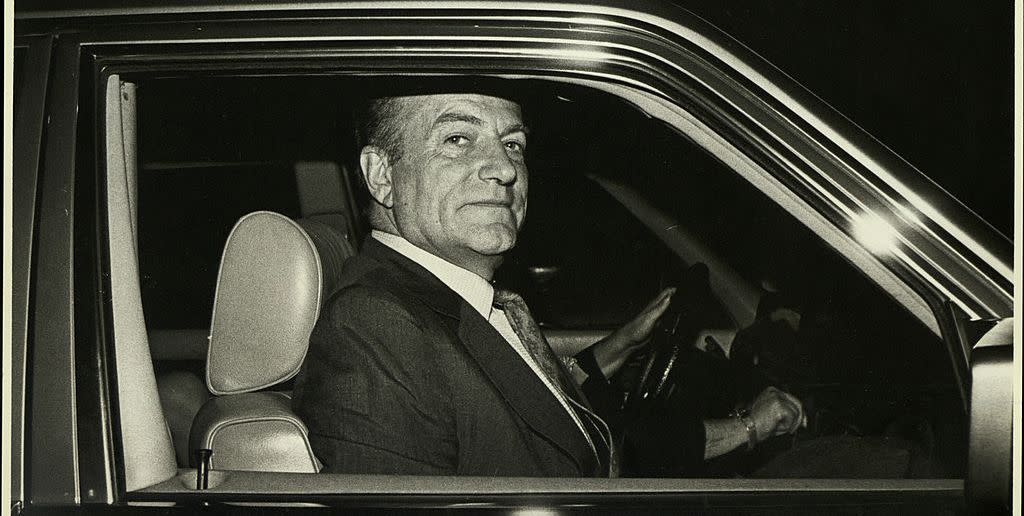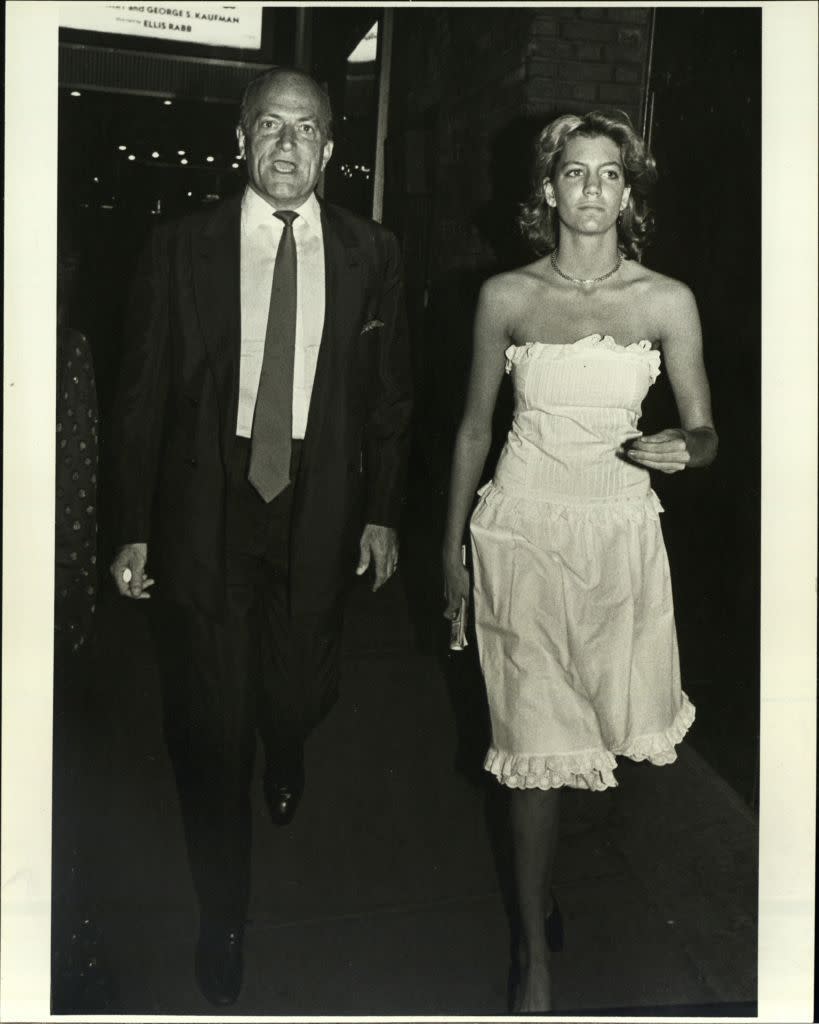How Claus von Bülow Became the Original True Crime Star

Claus von Bülow, a Danish-born socialite who was convicted and then acquitted of attempting to murder his wealthy American wife, died in London on Saturday at the age of 92, a family friend confirms to Town & Country.
The scandal that would define his life began in December, 1980, when Martha “Sunny” von Bulow (the Philadelphia Main Line heiress to a utilities fortune) was discovered unconscious on the marble floor of a bathroom at their oceanfront estate in Newport, R.I.

Sunny, who remained in a coma for the rest of her life, died in 2008. Her two older children-Prince Alexander von Auersperg and Ala Isham, née Princess Annie Laurie von Auersperg Kneissl, from a first marriage to Austria’s Prince Alfred von Auersperg-suspected foul play.
They hired investigators, which lead to an attempted murder charge for their stepfather.
In a 1981 trial, Sunny’s maid and von Bülow’s mistress, Alexandra Isles, both testified against him. It emerged that Sunny had also briefly fallen into a coma in 1979, and prosecutors successfully argued that von Bülow had poisoned his wife on both occasions with insulin injections. He was sentenced to 30 years in prison.
But the accused, who always had the support of Cosima von Bülow, his daughter with Sunny, overturned the judgment on appeal.
The highly-publicized retrial was argued by Harvard law professor Alan Dershowitz, and the case turned the lawyer into a star. His 1985 book about the case, Reversal of Fortune, was adapted into an Academy Award-winning film starring Glenn Close and Jeremy Irons and released in 1990.

Von Bülow eventually agreed to a settlement with his stepchildren that involved him divorcing their comatose mother and giving up any claim on her estate, in exchange for Cosima, who had been disinherited, being restored to her maternal grandmother’s will.

“The affection and support Cosima felt for her father was unwavering,” a family friend, who asked not to be named, told T&C. “He raised a marvelous woman, full of integrity, loyal but with her eyes open, who unwaveringly thought the world of him.”
The back-to-back trials divided both public opinion and the former couple’s international society friends. Some of them continued to embrace the handsome, charming European, while others shunned him as a murderer.
“We would see Claus at Mortimer’s,” the publicist Paul Wilmot recently told T&C. “People used to point at him-he was a tourist attraction!”
Von Bülow relished his newfound celebrity. His mordant humor was legendary. He once quipped that when visiting New York, “I always stay with my old friend Frank Campbell”-a reference to the Upper East Side undertaker known for society funerals.

Among those who continued to support him were late-twentieth-century society fixtures like Mercedes Kellogg (now Bass), Doris Duke and Catherine Guinness. Less enamored was Tina Brown, the former editor-in-chief of Vanity Fair magazine, who described him in her published diaries as a “dark bastard and I’d love to see him nailed.”
Still, in one of her most famous stunts, she put him on the cover during his trial. “Only Helmut [Newton, the photographer] could persuade a man on trial for murder to look in his closet and choose an S & M-flavored black zip-up leather jacket,” she wrote. “He looks positively satanic.”
There was always something of the night about Claus Cecil Borberg, who was born in Denmark in 1926. His father, a playwright, was imprisoned after World War II on charges of having been a Nazi collaborator.
Subsequently Claus adopted his mother’s maiden name: Bülow. The aristocratic prefix “von” was a later addition; he sometimes claimed was made at Sunny’s behest.

After attending Cambridge University, he worked in a variety of roles for the American oil tycoon J. Paul Getty, who was based in London. It was while moving in these privileged circles that he met his future wife, whom he married in 1966. Her annual income at the time was reported to be $3.5 million.
A taste for the social whirl never left von Bülow, who spent his later years in a flat not far from Harrods in London. I met him at a Knightsbridge restaurant party in the mid-1990s, on the night that Reversal of Fortune first aired on British television. He reveled not only in the attention, but also the tabloid gossip column sightings that appeared the following day. In recent years, acquaintances have described him as ill, and mostly keeping to his own apartment.

Von Bülow’s presence also haunts the New York diaries of Andy Warhol. He is noted attending parties from 1978 to just a month before the artist’s death, when Warhol introduces him to Bob Dylan at Nell’s nightclub in January, 1987.
Warhol quotes von Bülow telling him: “Thank you for being nice to me before I was a star.”
('You Might Also Like',)
